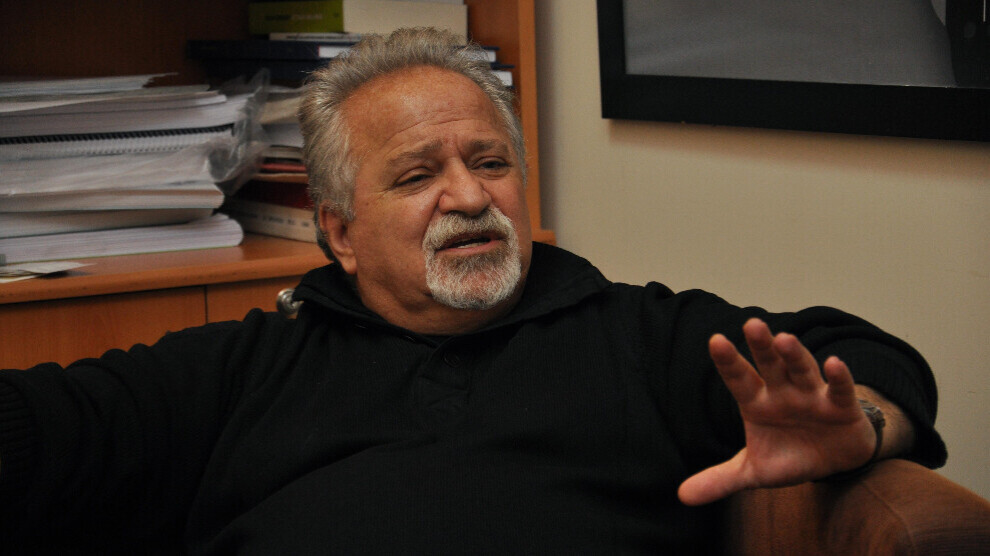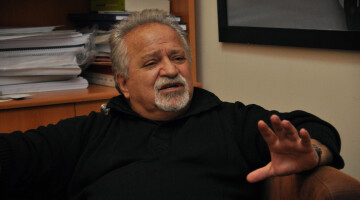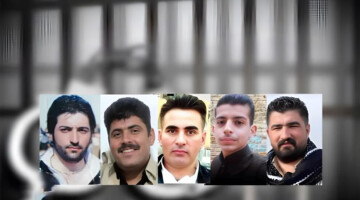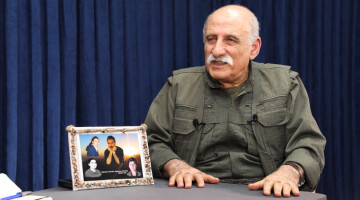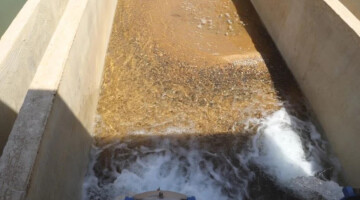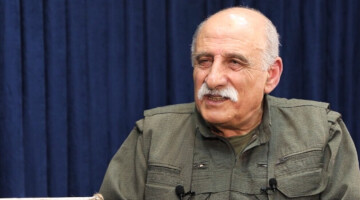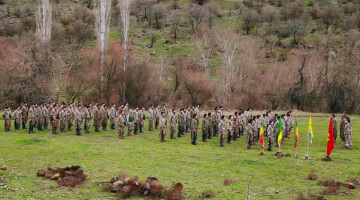As the long-standing shadow war between Israel and Iran has now turned into a direct conflict with airstrikes targeting each other, the balance of power in the Middle East, which began to shift after Hamas' attacks on 7 October, continues to evolve. Israel’s latest attacks on Iranian soil—especially assassinations targeting nuclear facilities and Iran’s high-ranking military command—show that this conflict has moved beyond conventional proxy wars. Despite all these attacks, Iran’s refusal to accept U.S. conditions and its direct targeting of Israel with missile strikes signals that the war is likely to deepen further.
Undoubtedly, this complex equation is not merely a series of military maneuvers between two states, but also a reflection of a structure in which regional power struggles, ideological rivalries, and state crises are deeply intertwined.
To better understand the background of the Israel-Iran war, what it truly means, the main objectives of Israel and the U.S. in this conflict, and what this war signifies for the Kurds of Rojhilat, ANF spoke with the Middle East expert Prof. Dr. Abbas Vali, renowned for his work on the Middle East, particularly Iran and the Kurds.
Since Hamas’s attack on Israel on 7 October 2023, in particular, the escalating tension between Israel and Iran has moved to a new stage with Israel now directly targeting Iran. What does it mean that Israel, after weakening Iran’s proxy forces in the region, is now directly targeting Iran?
I believe this war is part of the new developments in the Middle East. A new order is being established in the Middle East under American hegemony. This process of hegemony began on 7 October 2023, and Iran constitutes the final link in the establishment of this order.
In this context, it would be accurate to say that Israel is operating in a double capacity. First, Israel is trying to pursue its own interests, which conflict with Iran’s interests and presence in the Middle East. Second, Israel acts as a proxy power for the United States in the region.
In this war, these two roles have merged. Israel is fighting both as a military force acting in line with its own interests and as a proxy military force of the U.S. The operation has a twofold purpose.
You said that these attacks have two objectives. So what exactly are the main goals of this war against Iran?
These attacks have two goals. The first is to strike a heavy blow to Iran, to destroy its economic infrastructure, military capacity, and security apparatus, and to force Iran to accept the "ultimate" objectives. These "ultimate" goals are the demands that Donald Trump once imposed on Iran.
These demands consist of three points: Iran must completely stop enriching uranium; Iran must end its missile development program; and Iran must halt the restructuring and deployment of its proxy forces in the region. These are the three main demands that the U.S. has of Iran.
Therefore, the primary aim of this operation is to weaken Iran enough to force it to accept these demands. In that case, Iran would become a part of American hegemony. However, this would also present us with a weakened Iran, one forced to follow the American line. That’s the first goal.
The second goal is to carry out a regime change in the event that Iran refuses to surrender. This regime change will not resemble what happened in Syria, Iraq in 2003, or Afghanistan. In this case, regime change will most likely occur through an engineered internal coup. As a result of this coup, Iranian leader Khamenei will be removed from power and a new government will emerge.
This scenario is the ideal one for the U.S. and Israel. These were the objectives set at the beginning of the war. We are now on the eighth or ninth day of the war, and the situation has changed.
Has Iran’s ability to go on the offensive, despite the heavy blows it received in the early days, been a factor in preventing these goals from being achieved quickly?
Despite losing part of its military command and receiving heavy blows in the first two days of the war, Iran showed resilience. It recovered and is now engaged in a missile war with Israel. This missile war is becoming increasingly effective because Iran is using various types of missiles, some of which are managing to pierce Israel’s defense system, the Iron Dome. Notably, Iran has successfully hit three significant targets in Israel.
Following this, pressure on Netanyahu within Israel has increased. Just like on 7 October, Iran’s attacks have shown that Netanyahu’s security strategy has failed and that he could not protect Israel.
Let’s not forget that Israel is a very small country in terms of population and area. It’s about 72 times smaller than Iran and therefore quite vulnerable. Currently, as criticism of Netanyahu and the war he is leading increases within Israel, the crucial point here is this: Netanyahu must continue the war to preserve his power and government.
He is compelled to continue this war until some form of victory is achieved. That victory could be Iran’s surrender, internal changes in Iran, or the collapse of the Iranian regime.
How realistic is it to think that Israel alone could topple the Iranian regime? What are the possible limits and consequences of Israel’s attacks?
It’s hard to consider the complete collapse of the Iranian regime without direct American intervention. I believe U.S. intervention is necessary to topple the Iranian regime. Because this is an air war between two countries. Ground troops are not involved. Israeli soldiers are not fighting in Iran, and Iranian soldiers are not in Israel either.
This war is being fought entirely through air power, missiles, aircraft, bombs. That means that, by its nature, this war cannot achieve the goal of regime change in Iran in the short term. Also, this war cannot last two to three months. Neither Israel nor Iran can afford that. So, for an airstrike campaign alone to lead to regime change, certain conditions must be met. So far, those conditions have not arisen.
If I’m not mistaken, the condition you’re referring to is the expectation of a popular uprising in Iran?
Yes. What the U.S. and Israel hoped for was that when the regime came under attack, the people would rise up. That there would be an uprising, some kind of popular revolt against the regime, etc. But that hasn’t happened. In ethnic, linguistic, and national communities, for example, in areas like Baluchistan, Kurdistan, Khuzestan, and regions with Azeri populations, civil society is quite radical. However, that radicalism has not yet appeared in the central regions. After the Jin Jiyan Azadi revolution and the repression of Kurdish, Baluch, Arab, and Turkmen communities, these groups are now in a position where civil society is radical and ready to mobilize. But they will not rise up unless there is a movement in Tehran. Because the last time they rose up and fought the regime, Tehran, Mashhad, Isfahan, the central Persian-speaking regions, did not join them.
This time, Kurds, Baluchs, Arabs, and Turkmen are saying: “We want the regime to fall, but we won’t be the first ones to rise up and bear the brunt of the repression.” Since these groups have not risen up, Israel has had to escalate the war, and at the same time, it must persuade the U.S. to join the conflict.
Do you think the U.S. could become directly involved in this war? Given the experiences in Iraq and Afghanistan, how realistic is it for the U.S. to participate directly in a war like this?
This is a difficult situation for Trump because the power structure in the U.S. is divided on this issue. The old conservatives, the Bush-era neocons, want a war with Iran. But the populists in the American administration and power structure, those who embrace the slogan “Make America Great Again,” do not want direct military intervention in Iran.
So Trump has to make a decision. And that decision, of course, is whether to enter the war. Meanwhile, the Israeli lobby, the Jewish lobby, and all the other forces in the U.S. will now try to persuade those in the administration who are against the war. But I think Trump said, 'We’ve given two weeks, and within two weeks, we’ll think and decide whether we will enter the war.'
I see this as a tactical move. What Trump is doing is a tactic. Within these two weeks, Trump wants to achieve one of two goals. The first is this: to give Israel free rein to continue the war.
The goal may be achieved. That is, Iran may come and say, “Okay, let’s resume negotiations and we’re ready to accept your conditions.” This is quite unlikely. However, if Israel is truly successful, if it destroys Iran’s political power, leadership, and structure, and conducts regime engineering, then a new leadership will emerge. The new leadership might say, 'We want to save the country, and we accept U.S. partnership.'
So that’s where we are now. My guess is that this war won’t last more than two weeks, and a result will emerge within that time. I think that result depends on how much the U.S. continues to support Israel, and whether it fully supports it logistically without stepping on the brakes. And if Israel fails, then the U.S. will step in with air power to destroy Iran’s nuclear facilities. That’s one option.
The other option is this: Iran will wear down within these two weeks, and there will be some changes within the regime. Then they will turn to the U.S. and say, 'Let’s resume negotiations.'
One must also remember: in the last six months, about 200 days since taking office, Trump has not achieved any of the goals he announced. He hasn’t ended the Ukraine-Russia war. He hasn’t resolved the Gaza crisis. He couldn’t impose unified tariffs on China, and so on. And now, through the Israel war, he hasn’t brought peace to Iran. Looking at all of this, Trump is in a weak position in terms of U.S. domestic politics.
Trump would gladly welcome a negotiated end to this conflict. But at the same time, Trump feels insecure and believes he hasn’t met his goals. If Iran ultimately refuses to surrender in any way, it’s not out of the question that Trump could use America’s massive air power against Iran. However, the idea of deploying ground troops to Iran is not on the table.
That’s not going to happen. So, it’s extremely unlikely that the U.S. would send ground troops to Iran or that Israel would land soldiers in Iran. If the U.S. gets involved in this war, it will be only through air power.
What kind of situation would emerge in Iran if it accepts Trump’s conditions, that is, essentially surrenders?
I believe if this war ends with Iran’s surrender and its acceptance of Trump’s conditions, or with Iran’s military defeat and the elimination of its leadership, two different scenarios could emerge. The first scenario is this: If the war results in Iran’s defeat and Iran surrenders, that means the country’s security and military structures will remain intact or be preserved. This means that in the event of a possible popular uprising, these structures would be ready to suppress it.
But if the regime is toppled through air power, U.S. intervention, and the continuation of the war, then the possibility of a popular uprising in Iran emerges. If you look at how the war has been strategically designed, and this is a crucial point, Israel has attacked Iran’s economic infrastructures, missile systems, military leadership, and nuclear facilities; Israel has done all this.
But Israel has not attacked Iran’s internal security forces. In other words, the forces necessary to suppress an uprising. This means that the U.S. and Israel are afraid of a revolutionary popular uprising in Iran.
If something like that happens, the strategic calculations regarding the war, the goals and how to achieve them, will no longer be valid. A new situation will need to be evaluated. What’s important here is that neither the U.S. nor the current Israeli leadership wants a radical regime in Iran that comes to power through a revolutionary uprising. Neither the U.S. nor Israel wants such a regime.
What do these developments mean for the Kurds, who are the largest population in the region? Can Rojhilat, which has faced a repressive regime for years, turn this process into a gain?
I believe the Kurds can benefit from this situation. Yes, but there’s also this: If there is a regime change in Iran, it is certain that the Kurds will benefit from it. However, if there is an internal coup, and not a regime change but just a change within the regime, what consequences this would have for the Kurds is unclear.
What is important now is that the Kurds must first create unity among themselves. There are many Kurdish parties, and they are not united. There is a movement to unite these parties. And once that unity is achieved, something I’ve always told the leadership of these parties, they must unite around a minimum common program.
This minimum program should aim to establish a unified administration for Kurdistan in the event of the regime’s collapse. For this, a program that every Kurdish political force can agree on is necessary. This program should not be ideological, because all these parties have different ideologies.
Agreeing on an ideological joint program would be difficult. Instead, it should be a program based on the democratic and civil rights of the people of Kurdistan.
Additionally, the Kurds must create unified media that can address the Iranian people and the world. This media and discourse must be united. For this, the Kurds need a common, unified discourse. This discourse should not be a party’s discourse but a national one. It should be the discourse of all Kurds, not just one party. That is absolutely necessary now.
Kurdish parties must set aside their differences and form a united front based on a minimum democratic program and a joint democratic political and cultural discourse. This minimum democratic discourse should not be ethnic. It should go far beyond ethnic references and adhere fully to the principles of popular democracy.
In this context, there are two main features that distinguish Kurdish opposition from other opposition movements in Iran. First, the Kurdish opposition has always had political parties historically. This is something the others do not have. Second, the Kurds have armed forces.
Now, the issue of armed struggle has been interpreted differently in Bakur (Northern Kurdistan), especially after Abdullah Öcalan’s recent call. I am aware of that. But whatever the logic may be, this is different from the situation in Iranian Kurdistan, or Rojhilat.
Currently in Iranian Kurdistan, Kurdish political parties must maintain and strengthen their armed forces. Because these armed forces are very important in terms of possible developments both in Iran overall and in Rojhilat.
My recommendation is that they unite around a humanitarian program. That they unite with a common, unified, popular and democratic discourse. That they form a unified military command. This is absolutely necessary. When the regime collapses, the Kurds must have a unified military command capable of taking over governance. And even if the regime doesn’t collapse but only internal changes occur, such a command will still be very important.
If the regime accepts American demands and surrenders, or if a different kind of agreement is made with the U.S. and Israel, you can be sure of this: the first thing this regime will do is turn on its own people and launch a massive wave of repression, executions, prison sentences, arrests, and similar measures in order to re-establish its sovereignty in Iran. Given this possibility, it is very necessary — even vital — for the political parties in Iran, especially Kurdish political parties, to be prepared, equipped, and possess a well-trained armed force.

